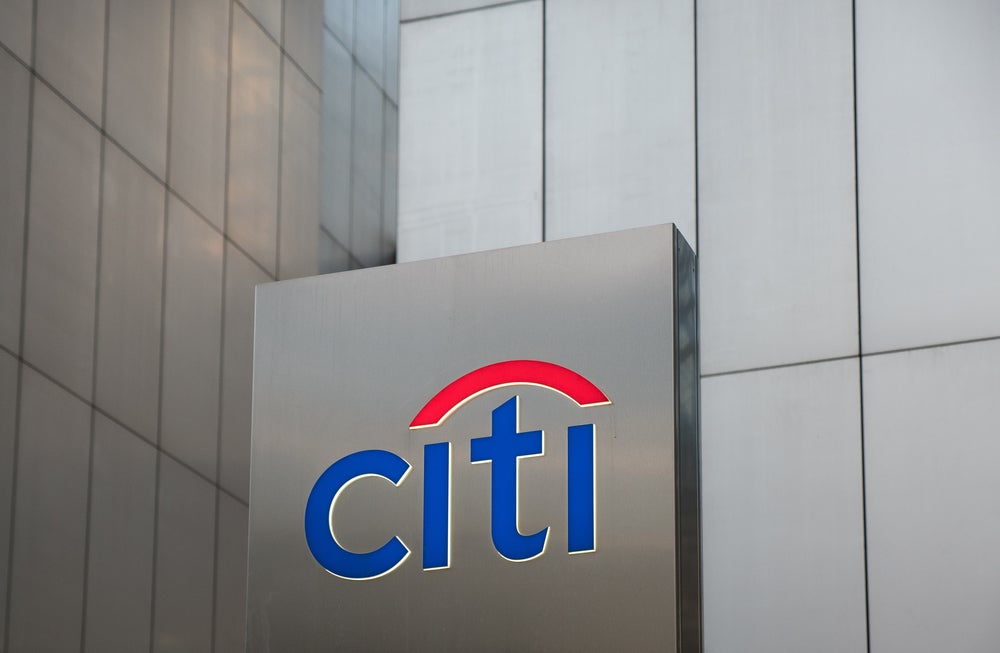
Citi posts net income for the third quarter 2023 of $3.5bn, up 2% year-over-year. The increase in net income is primarily driven by higher revenue, partially offset by higher expenses and higher cost of credit.
Revenues increase 9% from the prior-year period to $20.1bn. This is largely driven by strength across Services and Markets in Institutional Clients Group (ICG). US Personal Banking within Citi’s Personal Banking and Wealth Management group also performs strongly.

Access deeper industry intelligence
Experience unmatched clarity with a single platform that combines unique data, AI, and human expertise.
This increase is partially offset by a revenue reduction from the closed exits and wind-downs within legacy franchises.
Third quarter results include divestiture-related impacts of $299m earnings before taxes. This is primarily driven by a gain on the sale of Citi’s Taiwan consumer business.
Citigroup operating expenses of $13.5bn in the third quarter 2023 increase 6%. This is largely driven by investments in risk and controls, severance and the impact of inflation. The expense increase is partially offset by productivity savings and expense reductions from the closed exits and wind-downs.
Citigroup cost of credit is approximately $1.8bn in the third quarter, compared to $1.4bn in the prior-year period. This is primarily driven by the continued normalisation in net credit losses and volume growth in cards.

US Tariffs are shifting - will you react or anticipate?
Don’t let policy changes catch you off guard. Stay proactive with real-time data and expert analysis.
By GlobalDataCiti ends the quarter with loans of $666bn, up 3% y-o-y, largely reflecting growth in US retail banking. On the other hand, deposits of approximately $1.3trn are down by 3% y-o-y. The decline is largely due to a reduction in Services, reflecting quantitative tightening, a shift of deposits to higher-yielding investments in Global Wealth Management and a reduction of institutional certificates of deposit.
Personal banking, wealth management boost Q3 earnings
Personal Banking and Wealth Management PBWM revenues of $6.8 billion increase by 10%. This is driven by growth in net interest income, reflecting strong loan growth in US Personal Banking, as well as higher non-interest revenue. This is primarily due to lower partner payments in Retail Services and higher investment product revenues in Global Wealth Management.
US Personal Banking revenues of $4.9bn is ahead by 13%. Branded Cards revenues of $2.5bn increased 12%, primarily driven by the higher net interest income, reflecting strong loan growth. Retail Services revenues of $1.7bn increase 21%, primarily driven by the higher net interest income from loan growth, as well as the lower partner payments.
Retail Banking revenues of $624m decreased by 3%, largely driven by the transfer of relationships and the associated deposits to Global Wealth Management, partially offset by the strength in deposit spreads. Global Wealth Management revenues of $1.9 billion increase by 2%. This is largely driven by the transfer of relationships from Retail Banking, higher investment fees and higher lending revenue. PBWM operating expenses of $4.3 billion increase by 5%, largely driven by investments in risk and controls and severance, partially offset by productivity savings.
PBWM cost of credit of $1.5bn compares to $1.1bn in the prior-year period. The increase is largely driven by higher net credit losses of $1.4bn.
All five interconnected businesses post revenue growth
Citi CEO Jane Fraser said: “Despite the headwinds, our five core, interconnected businesses each posted revenue growth resulting in overall growth of 9%. Services, our fastest growing business, grew by 13%. Treasury and Trade Solutions had its best quarter in a decade. Markets was up 10% driven by strength in Fixed Income. Banking activity played to our mix and grew 17%. This is bolstered by a rebound in debt issuance and some signs of life in the equity capital markets. US Personal Banking also had double-digit revenue growth while a continued deceleration in spending indicates an increasingly cautious consumer. And Wealth revenues grew as the business continues to win new mandates and acquire new clients. Our CET1 ratio grew to 13.5% which is $14bn above our current regulatory minimum after returning $1.5bn to our shareholders through common dividends and share repurchases.”







